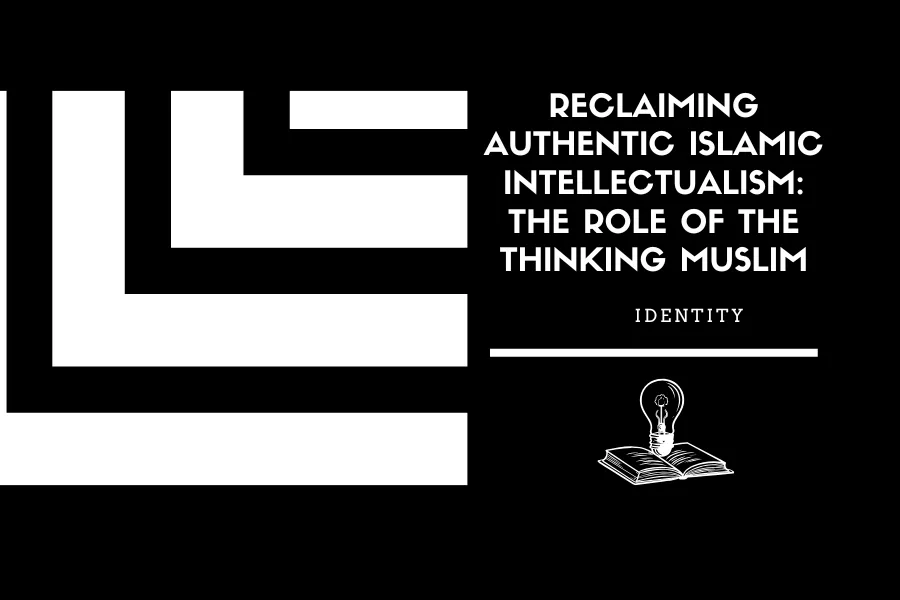
Reclaiming Authentic Islamic Intellectualism: The Role of the Thinking Muslim
Reclaiming Authentic Islamic Intellectualism: The Role of the Thinking Muslim
Today, the phrase “Thinking Muslim” is popular, but too often it is tied to reform and modernity that bend Islam to fit trends. Real Islamic thinking is not about reinventing the faith—it is about using the mind with Qur’an and Sunnah at the center. True intellectualism means thinking through revelation, not around it.
Many mistakes hide under the banner of intellectualism. Some people get lost in philosophy that ignores divine guidance, spinning theories that confuse more than clarify. Others dive into activism without Islamic ethics, borrowing ideas from modern ideologies where the ends are thought to justify the means. Still others try to bend Islam itself to win approval, reshaping revelation to suit secular expectations. These patterns replace clarity with speculation and weaken the community.
Authentic Islamic intellectualism is different. It is guided by ‘aql shar‘ī—reason that submits to revelation. The Qur’an highlights this when Allah says:
“Those who listen to the Word and follow the best of it. Those are the ones Allah has guided, and those are truly the people of understanding.” (Az-Zumar:18).
Ali ibn Abi Talib (RA) also explained this with deep insight: “If the religion were based upon opinion, one might expect the bottom of the leather sock to be wiped instead of the top. I have seen the Messenger of Allah ﷺ wiping over the upper part of his leather socks.” (Sunan Abī Dāwūd).
These words show that intellect must submit to revelation. Human reasoning alone might reach one conclusion, but prophetic practice reveals divine truth. Real intellectual growth happens when the mind accepts guidance from Allah and His Messenger ﷺ. That is not the end of thinking—it is the beginning of clear, enlightened thought.
Signs of true intellectualism appear in daily life: living with awareness of Allah, reflecting on divine signs in the Qur’an and creation, accepting reminders with humility, and submitting even when guidance challenges personal opinion. These are the habits that bring clarity instead of confusion.
Today, mistakes often appear in theology, politics, and social life. In theology, some present Islam as just one path among many. In politics, movements borrow from nationalism or utopian dreams instead of relying on shura, justice, and accountability. In social issues, Islamic values are watered down for popularity. These errors come from seeking approval, mistaking boldness for wisdom, or replacing principle with emotion.
The way forward is not complicated, but it does require courage. We must keep tawhid central, hold firm to ethics even when unpopular, teach Islam fully instead of diluting it, and strengthen family and community ties over selfish individualism. In practice, this means building an independent identity, consulting sincerely within Qur’an and Sunnah, focusing activism on education, safety, and justice, and developing businesses and networks that keep our communities strong—just as the Prophet ﷺ built a market in Medina for independence.
Revival will not come from chasing trends or reshaping Islam to fit others’ expectations. It will come from trusting revelation as the foundation of all thought. A true “Thinking Muslim” faces challenges with Qur’an and Sunnah as the guide, confident that divine wisdom already provides the clearest path for reform, leadership, and human dignity.
Brutha Bilal
Build the Mind, Build the Community
12 July 2025 | 16 Muharram 1447 AH